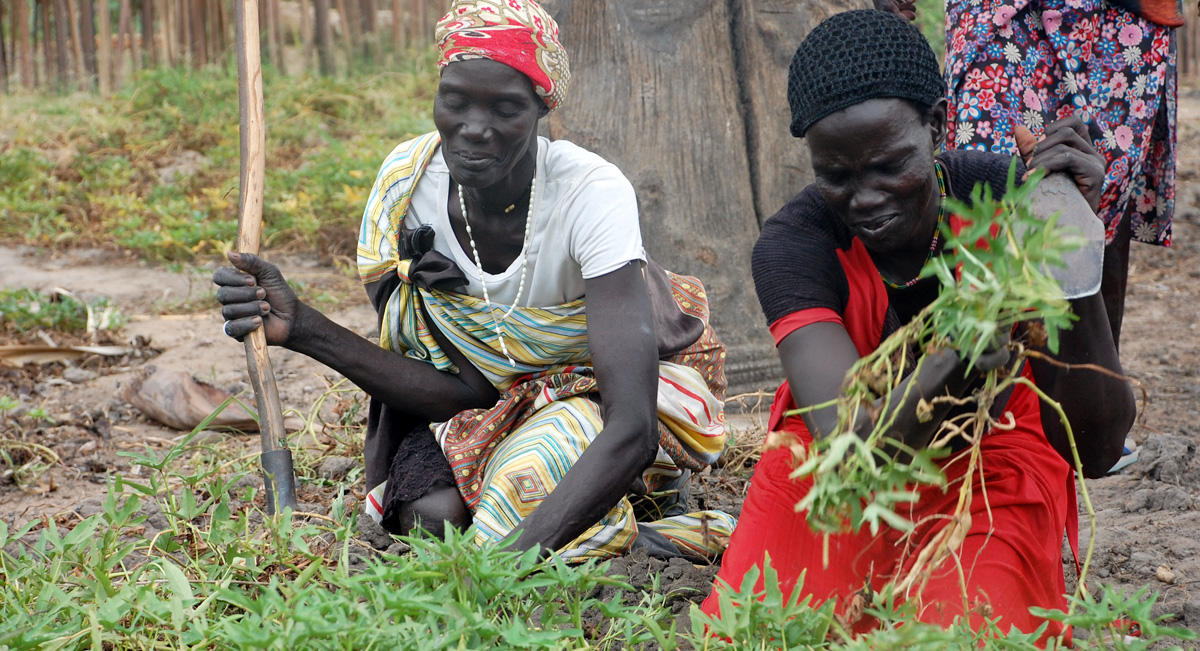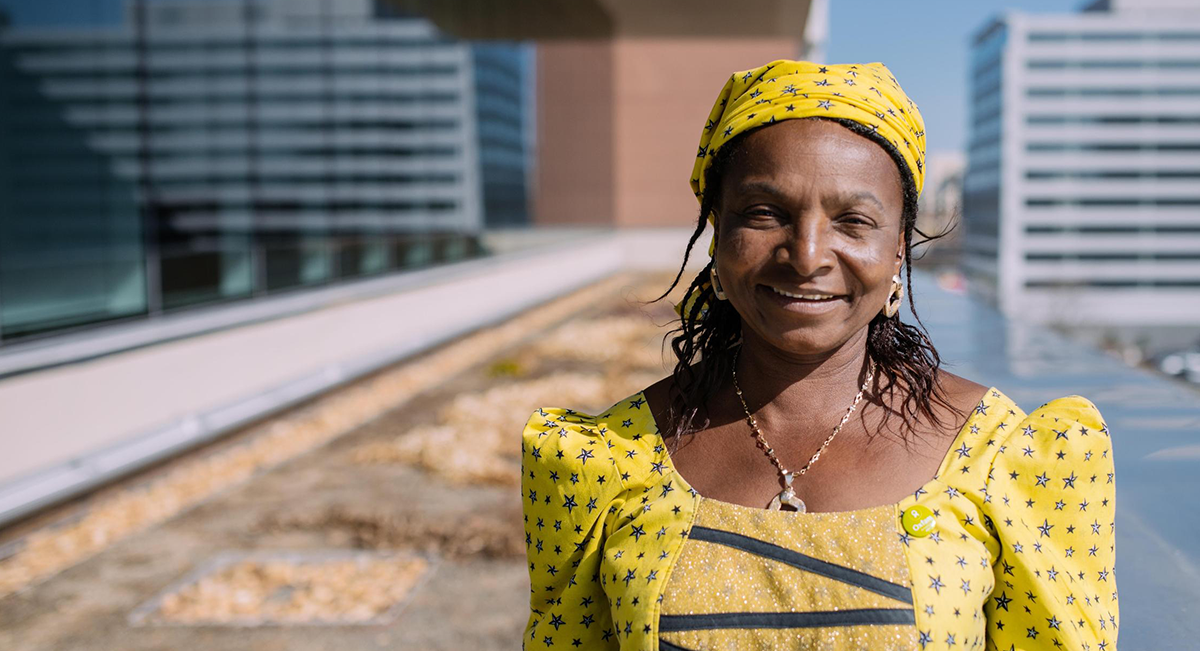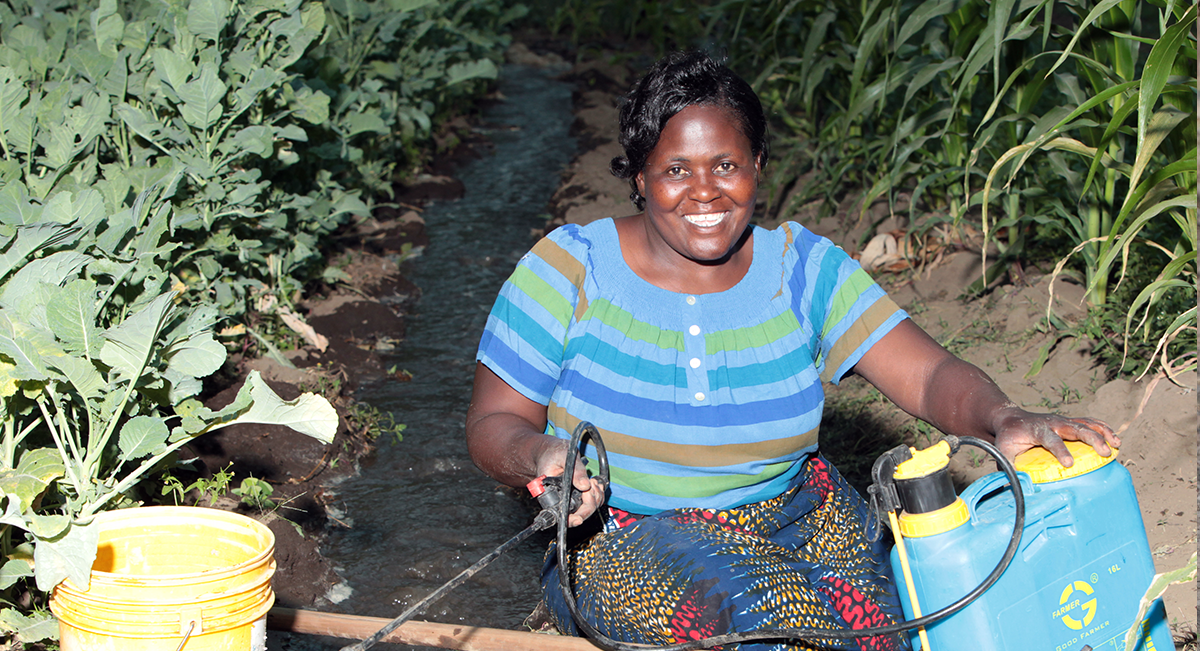Women who are Leading the Fight Against Hunger
Climate change, conflict and the failure of governments to tackle them have left more than 800 million people living with hunger around the world.
When hunger strikes, women are more likely to be affected. But women also have the power to overcome hunger and provide food for their families and communities. Women make up on average 43 percent of this agricultural labor in developing countries. In South Asia, more than two thirds of employed women work in agriculture. In eastern Africa, over half of farmers are women.
They’re growing the food — but they’re often not getting the resources they need to really put an end to hunger.
Women farmers produce 20 to 30 percent less than men farmers because they face two compounding layers of exclusion – as smallholder farmers and as women. Equalizing this gap could boost agricultural output and decrease global hunger by 17 percent.
Today for #WorldFoodDay we’re showcasing four women who are leading the fight against hunger. As farmers, activists and aid workers, women are feeding their communities, reducing poverty, and challenging those in power to do more.
Kitabe from Ethiopia
Kitabe is a member of a cooperative organized by Oxfam and partners in the Oromia region of Ethiopia. Through the project, she received a loan to improve her onion farm. She was scared and reluctant to join the project at first — because as a poor woman, her status in the community was low.
Now, she says, “ With the loan we got we have become more productive and have learned new skills. We also have food. We are not scared now – we don’t have food insecurity. The biggest thing I have learned is to be fearless, and I fear nothing now.”
“It’s much easier for men. They get up early, eat, and go to farm. They spend all day working on the farm or supervising. For me, it is double the job. I have to work on the farm and look after my family.”
Kitabe meets with other women in the community regularly to help deal with these issues. “We discuss our challenges, our work. We work together in groups. When I struggle to read all the women come to support me.”
Mary from South Sudan

Mary moved onto an island with her children after facing extreme hunger in South Sudan. But she found that food and trade were scarce.
“We used to go to the swamp for water lilies, sometimes the water is very deep and reaches right up to your neck. And after all work, the taste is not good. They gave us pain in our stomach.”
But then Mary began doing some impressive cultivation, thanks to an Oxfam initiative to help island and mainland communities set up vegetable gardens to boost their own diets and build up their livelihoods.
“From our vegetable garden we’re growing lots. In fact, we have enough okra, eggplant, onion and more to feed ourselves and our children, and send them to school.”
Monica from Nigeria

Monica Maigari is an extraordinary smallholder farmer and teacher from Kaduna state in Nigeria. As well as running her own farm, she has helped set up women’s groups to share farming knowledge and techniques.
Since winning Oxfam’s Female Food Hero competition in 2014, Monica has spoken at high profile events in Addis Ababa and Washington DC. From her village to the world stage, she is committed to helping other women to grow in their farming.
Monica says, “Women must join together to build a better food system, and to advocate for our rights to land, tools, and education”
Maria from Tanzania

Maria is no ordinary farmer. Last year she won the Female Food Hero competition in Tanzania – which was broadcast to an estimated 10 million people!
The 15 finalists had to complete tasks on everything from farming and selling crops to helping end violence against women. They also received training and advice from banks and food processing companies.
Maria used her acceptance speech to call on the government to increase the agriculture budget to help small scale women farmers.
Help Women Lead the Fight Against Hunger
It’s easy to see women as victims of the global food crisis. But if women were given equal rights, resources and a seat at the table where decisions are being made, they could help turn the situation around.
For World Food Day, give a gift of hope to support women in the developing world.
When you buy a chicken, a pack of seeds or a garden through Oxfam Unwrapped, you are supporting Oxfam’s food security programs. These gifts are about supporting food security and boosting livelihoods for the long term.




